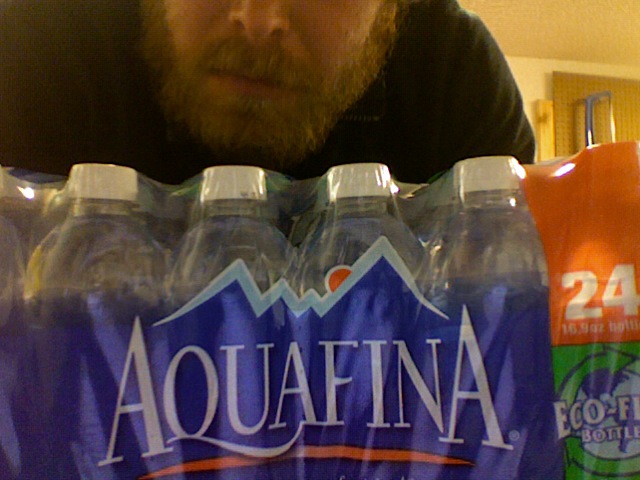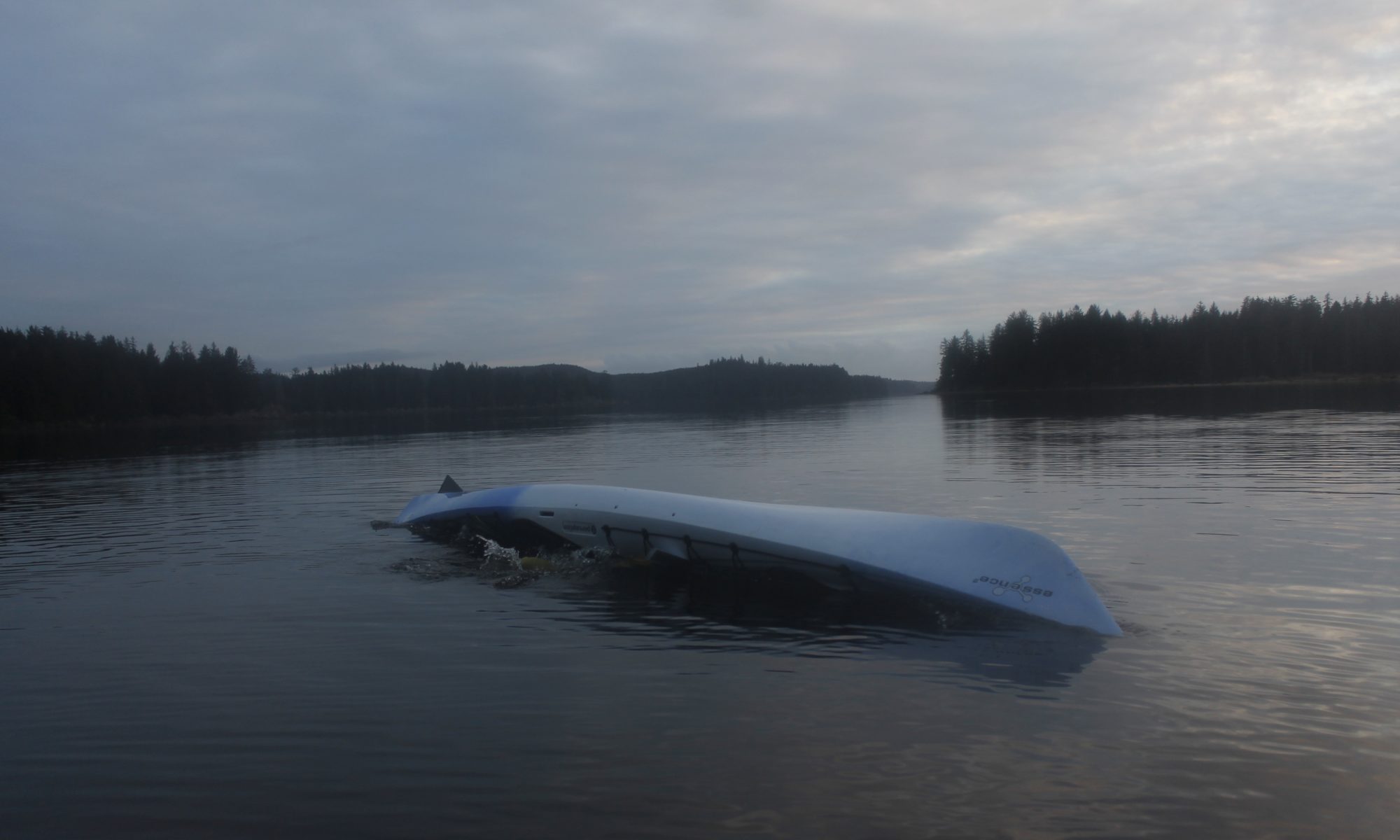
Amidst the troubled backdrop of our planet’s state of violence, injustice and deepening environmental crises, it might seem trite to launch a diatribe against bottled water.
But what choice do I have? I’m the guy who stocks the fridge at work.
Perhaps one of these days I will have to stand before some tribunal as the prosecutor questions how I, how anyone with a conscience, could have allowed the crates full of bottles to roll off the truck and into the office. Further investigation will reveal how I regularly restocked the fridge downstairs so that resort guests could snag them (when clean, potable water was available from several nearby sinks) and eventually discard the plastic husks. Compounding this idiocy, many people will throw their bottles out half full.
“I was just doing my job,” I’ll protest, knowing in my heart that I was part of a senseless problem that didn’t need to exist.
OK, I really don’t want to explain why bottled water sucks because I feel like I’m not saying anything new. The verdict’s been settled year’s ago, and we’re all supposed to be drinking tap water from trendy (if pretentious) Nalgene bottles, aluminum flasks, that funky glassware I’m seeing in stores now, or some kind of goddamned reusable vessel. But all these people who keep swilling the bottles that I stock in the fridge, haven’t got the memo yet.
So here’s what they need to know:
Strike One!
Putting water in bottles is a stupid waste. The plastic comes from oil, so already the bottles support a polluting industry. Ironically, oil extraction comes at a heavy price in water, and the industry has a crappy track record when it comes to spills. Burst oil pipes have ruined people’s water along the Yellowstone River in Montana this month and back in 2011*. The next big oil bonanza, the Alberta tar sands, which so many of our beloved members of congress are so keen on shipping via the Keystone XL pipeline, has created its own health crisis. The indigenous people who rely on the Athabasca River** for its food and water, have suffered a huge risk of cancer cases, which studies have linked to leaks in the tar sands mining operations.
The Aqua Fina bastards actually have the gall to put “Eco-Fina” on the side of their bottles because they figured how to make the bottles with 30 percent less plastic. Sorry, but I’m not so impressed when 100 percent of those bottles shouldn’t exist.
Yes, plastic bottles are just one part of a vast web of petroleum-based products that our society has become dependent on. But while it may take some sacrifice to cut down on driving, turn back the thermostat or take the bus, it’s pretty easy to stop drinking out of bottles and start drinking out of the tap. Actually, it could save a bunch of money. Even if the drinking habit only costs a buck a day, that’s $365 down the toilet by the end of the year.
Strike Two!
Shipping bottled water is a stupid waste. Semis belching diesel fumes rumble along thousands of miles of highway so that a consumer in California can swig Poland Spring water from Maine (only some of it actually comes from the “Poland Spring, the rest we have no clue. ) *** Presumably the Californian has water available nearby, even if much of it goes toward keeping lawns green and the vineyards watered.
Normally it would be economic insanity to pay the gas to ship something as low-value as water across country. Unfortunately marketers are very good at assigning value where there isn’t much. “You’re not just drinking our water, you’re drinking our brand!” I can imagine some scummy ad-exec telling a boardroom. Hence the elongated, extra-wasteful bottles from Fiji (the name of the brand and, incredibly, where they ship water from.)
When I trundle one of the cases of water toward the fridge, I imagine the energy that it takes to haul this, multiplied over thousands of miles, the gallons of fuel burned into the the atmosphere, to provide a trivial convenience.
The companies have cashed in on this status value, paying themselves with something both unnecessary and harmful. If you’re like me, you might rankle at the idea of someone hoodwinking you into buying something you don’t need by convincing you it’s necessary. What’s next? Bottled air from British Columbia? Stay tuned.
Strike Three!
What the hell makes their water better? There have already been studies showing that bottling plants often have to abide by lower standards than city water systems. I’m not going to wade into each bottled water company’s processes, in part because I doubt many customers even consider what the processes mean either, but just assume that something in a comforting, plastic package is necessarily safer than whatever pours out of the sink.
For those who are convinced that the local water is really tainted, do they take the next logical step and stop using it to prepare meals, stop drinking soda at restaurants where it comes from syrup and tap water.
OK, so there’s no accounting for taste, and if you really don’t like the taste of your local water, you’ll probably just have to suck it up and keep drinking. Or get a filter if it comes to that. You probably don’t like the way some water tastes because you’re used to drinking the water you grew up with. Once you start drinking from the tap regularly, you’ll probably get a tolerance, in the same way that many people come around to the taste of coffee or cheap beer.
If your water explodes or is actually full of poisons, you might have to reach for a gallon jug sometime.
I doubt most Americans are in that situation — not yet. In fact, I’m sure many of the bottled water drinkers who visit the fridge I fill have heard something about how wasteful and destructive this habit is. They persist because ‘aw, what the hell?” Then they get into their Subaru’s tricked out with all the green and lefty political stickers, unaware that they debase what they claim to believe in, because they aren’t willing to make a sacrifice as tiny as drinking out of the sink.
We’ll have a chance of reversing the planet’s catastrophic course if we start making comprehensive changes to our personal habits, redefining our wants and needs so that we don’t take more than our share and we give back what we owe. There’s a lot of work to do, but maybe we can start by throwing down the fucking bottle.
* Un-fucking believable. When I was writing this blog post, I wanted to mention the 2011 spill. I did a web search for Yellowstone River oil spill and I found out that another disaster happened today. How long are we to keep destroying life and beauty for the conveniences that fossil fuel gives us in the short term.
** Check out this fine article in Outside Magazine: http://www.outsideonline.com/outdoor-adventure/nature/The-High-Cost-of-Oil.html
Better yet, pick up a copy of This Changes Everything, the Naomi Klein book that came out in 2014, which talks about the cancer rates suffered in the community around the Tar Sands, and does an altogether excellent job explaining the various destructive pathways carved by the fossil fuel companies, and the toxic effect that unchecked capitalism has on our planet.
*** Mother Jones backs this up. MJ pressed Poland Spring’s PR guy to admit that only one third of the water in those bottles comes from “Poland Spring” in Maine. Personally I wouldn’t give a damn where the well was drilled. I’d rather have the water be a well nearby, or drink treated water from the abundant Lake Superior, which is right next to me. The article also underscores the lack of transparency that bottled water companies have when it comes to identifying where their water comes from. I suppose we should just take the companies at their word, because who’s heard of a company being dishonest to customers?
http://www.motherjones.com/environment/2013/03/bottled-water-poland-spring-rubio
**** Here’s another source that has some damning numbers about bottled water:
Note that the author found a Columbia University study showing that water in a bottle costs 2,900 times more than what’s on tap.
http://news.nationalgeographic.com/news/2010/03/100310/why-tap-water-is-better/
